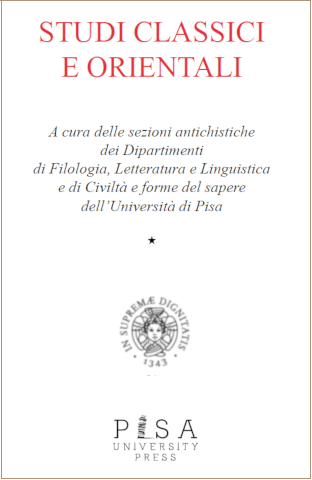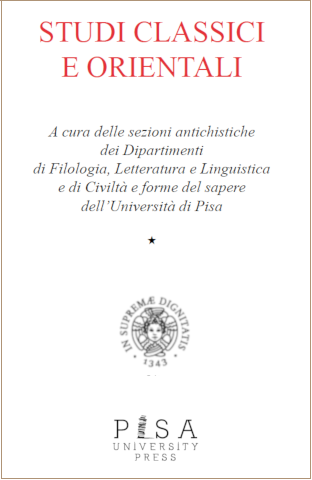Innumerabilia saecla. What was there before time? Seneca's and Cicero's accounts
Parole chiave:
Cicero, Seneca, time, cosmology, time-before-timeAbstract
The existence of a ‘time-before-time’ in the event of the beginning of time is a topic of philosophical interest, particularly within Latin literature. Seneca’s Epistulae Morales 88.33 emphasizes the importance of this question regarding the concept of time: discendum est […] an aliquid ante tempus sit sine tempore. While this issue was extensively debated in ancient times, our understanding of the subject remains limited. The discourse likely emerged within cosmological grounds, since time is invariably linked to cosmic movements such as those of the sun, the moon, stars, and planets. If some movements existed before the birth of our cosmos, then a ‘pre-cosmic time’ would also have existed. As a result, it is natural to inquire about the nature of such a time. But should it be reduced to a form of potential and rudimentary measurement, or should it be perceived as something entirely distinct from time? Cicero’s writings provide a significant source for this inquiry. According to the Epicurean Velleius (Cic. Nat. deor. 1, 21), time-before-time was not circumscribed by temporal measures but could be comprehended as some form of ‘space’. The proposal defended in the paper is that aeternitas, ‘eternity’, needs to be regarded as a spatium, ‘space’, in Velleius’ account, since pre-cosmic time should like unidirectionality: this fact distinguishes it from cosmic time. The comprehensive examination offered by the paper will provide a new perspective on a neglected aspect of the ancient world’s history of time.



